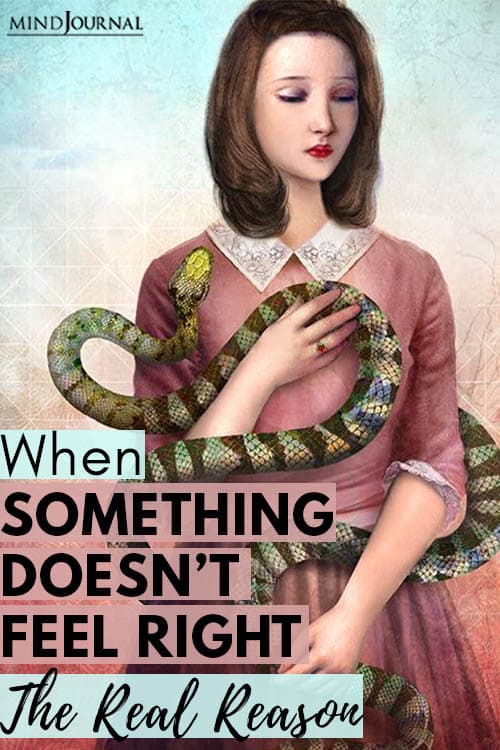At some point in life, we all have encountered a situation where something doesn’t feel right. This post gives you insights into why we feel in a such way and what does it mean.
“I am left feeling I am not good enough.”
“I am always waiting for him to call.”
“She never seems to listen to me.”
“I feel like I always have to respond straight away.”
“I do not feel settled.”
“I always feel like I am being scrutinized.”
“I feel like I am out of my depth.”
“I am always wondering whether he is serious or joking with me, I struggle to tell.”
“I cannot seem to think about anything other than him.”
“She makes me feel left out.”
“It seems like I am always running around after him.”
“I always feel like I have to please them.”
“I feel like I am on trial.”
“I find myself always having to explain myself.”
“It feels more like an obligation than a friendship.”
“I am often left wondering what is happening.”
“I am left feeling unsure of myself.”
“I feel like I am always on call for her.”
“I keep feeling jealous and that makes me feel bad.”
“I am anxious for him to leave her and be with me.”
“If I express an opinion I feel like I am being unfair in doing so.”
“It is great when we are together, but then am left feeling uncertain when we are apart.”
“I am sure he doesn’t mean to make me feel nervous, but I am.”
“I don’t think I am good enough.”
“I don’t want to let her down.”
“Nothing seems to bother him and I am such a worrier. I will put him off.”
“I don’t understand why he still keeps in touch with her, but I don’t feel I can say anything.”
“I am nervous I will mess this up and he is so wonderful.”
“It´s nothing specific, but there´s something that makes me uneasy. It is probably just me.”
Doubtless many of you will find some of the above comments will resonate with you.
Why Something Doesn’t Feel Right?
You have been created with emotional empathy.
This has formed the bedrock for your worldview and your perspective. This accords with a majority perspective and forms the basis for those subjective qualities of what is deemed as “good” and “bad”. Since you operate within the majority perspective it is your perspective of “good” and “bad” that prevails.
When you encounter something which contrasts with this majority perspective, you often do not see it as a clear, shining example. Instead, you have a “feeling” or a “gut instinct”. This is the manifestation of behavior that clashes with your empathic worldview. This is your alarm bell.
There are those of you whose alarm bell does not often ring at all, although you are limited in number. For most of those who are empathic, the alarm bell rings through some kind of feeling encapsulated by many of the phrases detailed above and more besides.
So far, so effective. You have an established worldview formed by your emotional empathy. When you encounter behavior which contrasts with this empathic worldview, your alarm bell goes off. Where it is one of our kind (and it almost always is one of our kind) which has caused this alarm bell to sound, this is when the problem starts.
Your alarm bell sounds but you attribute it to the wrong cause.
Read Dehumanization: A Narcissist’s Ultimate Manipulation Tool
You either think that the cause is an external reason for this alarm bell, such as:
- The individual is tired or exhausted.
- The individual is drunk.
- The individual is suffering from stress.
- The individual is suffering from grief or bereavement.
- The individual is under some kind of pressure.
- The individual suffers from anger management issues.
- The individual is highly strung.
There are others besides.
The alternative is that you think the cause is an internal reason, namely your behavior, such as:
- You are too sensitive.
- You have been hurt before.
- You are too direct.
- You think badly of people too quickly.
- You are too trusting.
- You were not listening.
- You judged too soon.
- You are tired, upset, stressed.
- You were insensitive to the needs of others.
- You were worried.
There are others besides.
Accordingly, when your alarm bell rings, you end up attributing the sensation of something feeling wrong to either an external cause to that you are the problem.
This is incorrect.
It is akin to your burglar alarm going off and you think it was a passing cat or that you tripped the sensor yourself. It was the burglar.
Something which offends your worldview offends the logic of your world. Your logic seeks to warn you by creating a feeling or a sensation (the alarm bell) so that you take action.
Unfortunately, two factors interfere in this warning system.
The first is a lack of understanding about the nature of the individual that is generating the behavior which causes the alarm. The red flags signal that it is a narcissist that is engaging in behaviors that are offending your worldview.
The second is the obscuring nature of your emotional thinking which does not want you to pay attention to the alarm’s actual source and instead diverts you to think it is the external source (incorrect) or your fault (also incorrect).
Read 7 Common Gut Instincts You Should ALWAYS Listen To
Emotional Thinking
Your emotional thinking does not want you abiding by the logic of your world. It does not want you acting on the alarm by identifying the real cause (the narcissist) and then taking the logical step to avoid further harm (further feelings that something is wrong) by removing yourself from the real cause (the narcissist).
Your emotional thinking does not want to do what is best for you. It does not want you to know the actual source of the alarm nor act on that alarm. It wants you looking in the wrong place,e taking the incorrect course of action so that you remain interacting with the narcissist.
Your emotional thinking does not care about your physical health, your emotional contentment, your mental well-being, or the state of your bank balance. It is not interested in you engaging with a healthy, normal, and well-adjusted individual. That does not matter to your emotional thinking.

For a very unfortunate few of you, there is no inherent alarm system and you need to build one. It is hard work but achievable.
For the vast majority of you, you have the alarm system but it is infected and caused to malfunction by making you look in the wrong place for the problem and not act on the actual problem. Fortunately for you, this faulty alarm system can be corrected although it requires repeated and ongoing maintenance, which is naturally most worthwhile.
There is a valid reason why something doesn’t feel right. It is your early warning system, but it is not perfect and it is fundamental that you realize this and understand that it is here that you are able to perfect its operation.
Written by HG Tudor
Originally appeared on Narcsite
Republished here with permission











Leave a Reply